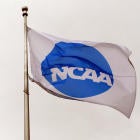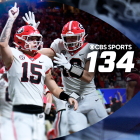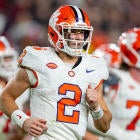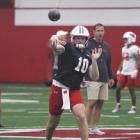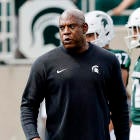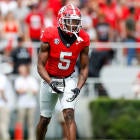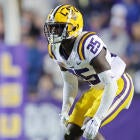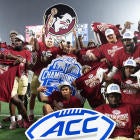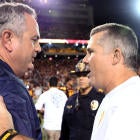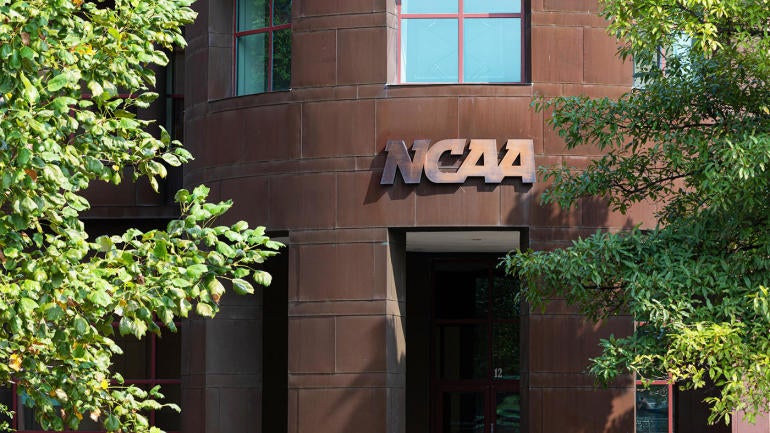
A Power Five athletic director this week provided his opinion of the NCAA NIL memo that caused so much of a stir. His text message response was both significant and damn funny:

Happy birthday, Name, Image and Likeness. Yup, NIL turns two on Saturday, and college sports is better for it. Or worse. It's hard to say and probably depends on who you know, threaten or pay before they even take a college snap.
Like a lot of toddlers this age, NIL has created plenty of uncertainty. What's the NIL equivalent of diaper wipes? The aforementioned memo caused such a stir because it claimed schools in states with conflicting NIL laws are "required to comply" with NCAA rules. Or else … what? The NCAA essentially said the exact opposite two years ago.
NIL was adopted by the NCAA in 2021 because the association's rules had been trumped by myriad state laws. Those laws have only become stronger, almost competitive, almost daring the NCAA to intervene. They are why the NCAA has been desperately seeking help from Congress for a uniform federal NIL law.
The wild, wild West has never looked so … wild. Now, if we could only get some stability and credibility. The schools don't have it, establishing a collective culture than in many instances resembles pay-for-play.
"Would you rather pay Scott Frost's buyout, or would you rather take $10 million in booster money and go buy better players? That's what is going to happen," Opendorse CEO Blake Lawrence asked during a conversation with CBS Sports last year.
The NCAA doesn't have it. They created this monster, ignoring numerous opportunities over the years that could have allowed athletes to be fairly compensated. The association can issue all the memos it wants. Guidelines aren't enforcement and enforcement isn't penalties. So far, we have seen scant evidence of any kind of deterrence from the NCAA.
Hence the bourbon tumbler and cry laughing emojis.
There has been the Miami case, but nobody really got nicked. Those penalties certainly didn't slow a start-up industry that went from 0 to $60,000 overnight.
Meanwhile, coaches keep whining about poaching and inducements and cheating while choosing not to name names.
Is it time roll back NIL or accept it? Besides, it isn't the NCAA's biggest threat at the moment.
Administrators everywhere are more concerned over the bill introduced by California Assemblyman Chris Holden. It would provide revenue sharing and enhanced medical care for players.
Such a bill would impact the collegiate model way beyond NIL, potentially leading to a series of copycat laws in other states, much as happened with NIL.
The College Athlete Protection Act could be become law as soon as January.
The National Labor Relations Board is considering whether players should be considered employees, a discussion stemming from a complaint filed against USC, the Pac-12 and NCAA.
There are at least two major court cases that could kneecap the NCAA. House vs. NCAA seeks to wipe out the association's ability to cap compensation for athletes, while Johnson vs. NCAA seeks to make athletes employees. A recent appeals hearing in that case did not go well for the NCAA.
And there is handwringing over NIL?! Nick Saban is on board in making employees of athletes.
Meanwhile, amid the upheaval, virtually nothing on the field has changed. If anything, major college sports have been more competitive, not less. Wake Forest soared to No. 1 and advanced to its first College World Series since the 1950s. TCU, Cincinnati and San Diego State have all played for revenue-sport national championships in the last 1.5 years.
The latest, biggest concern is that several states in the SEC footprint are barring the NCAA from intervening in NIL cases. Forget Missouri's mediocre football, the state's NIL bill is becoming the template for other states to follow. SEC commissioner Greg Sankey has said, if Congressional help doesn't come, his league may go state-by-state attempting to persuade legislators to change their laws.
Don't hold your breath.
"First of all, we have to agree," Sankey told CBS Sports. "You'd end up at statehouses saying as a conference, 'We need consistency.' I wouldn't use the word 'expect' [as in, expecting that to happen]. It's not Plan A or B."
In the slow midsummer news cycle for college sports, that memo caused a stir. Then NIL turned two. Maybe it doesn't even deserve a birthday card.








